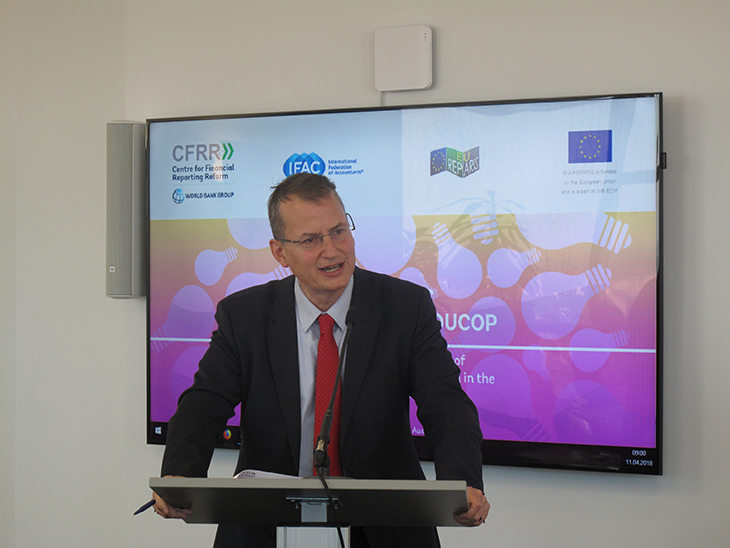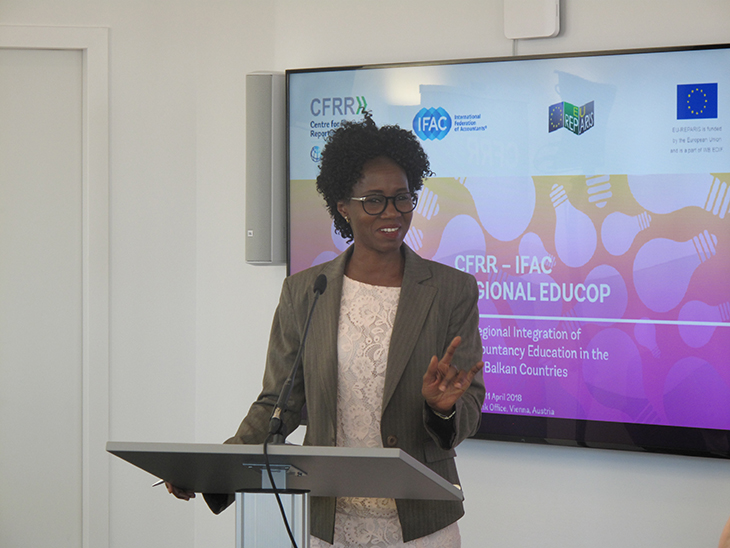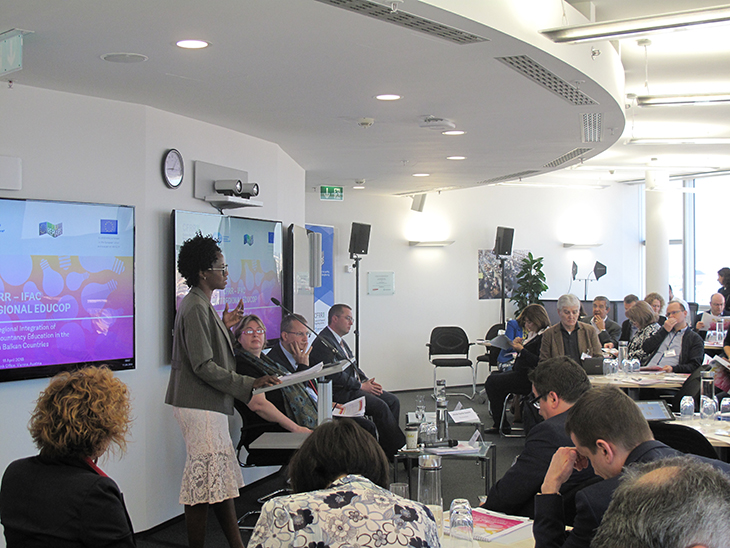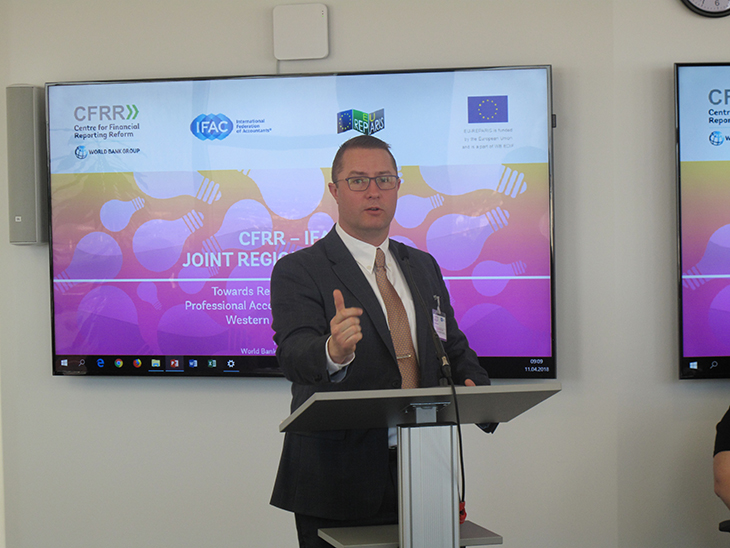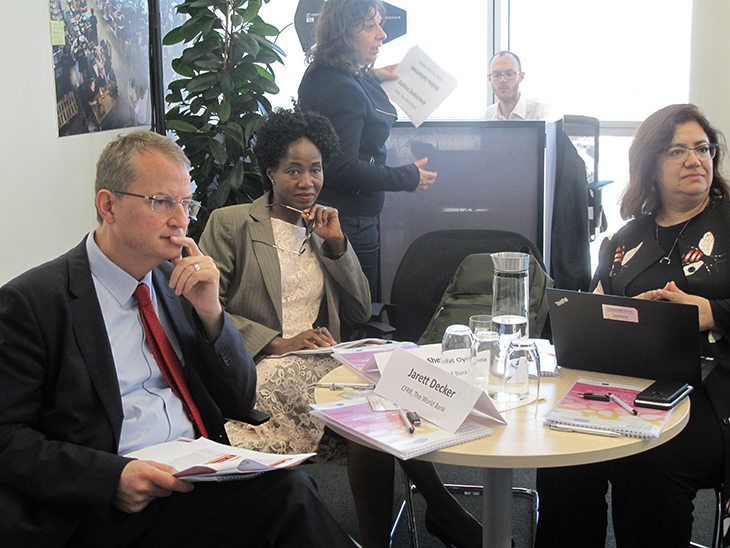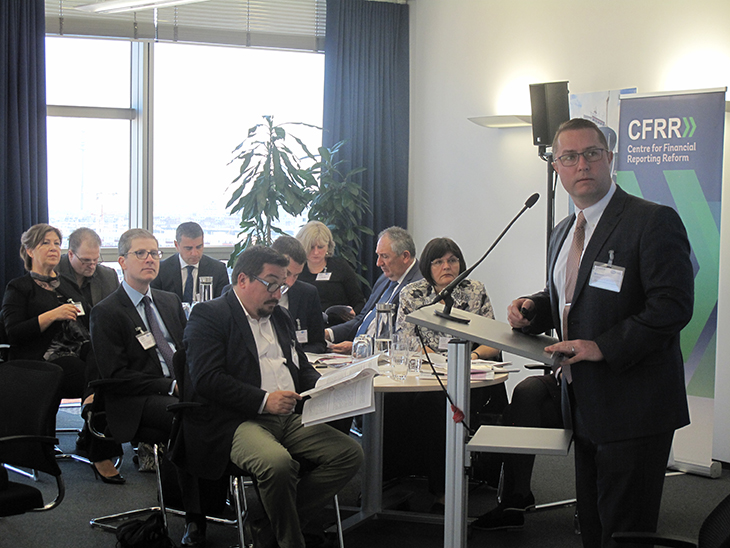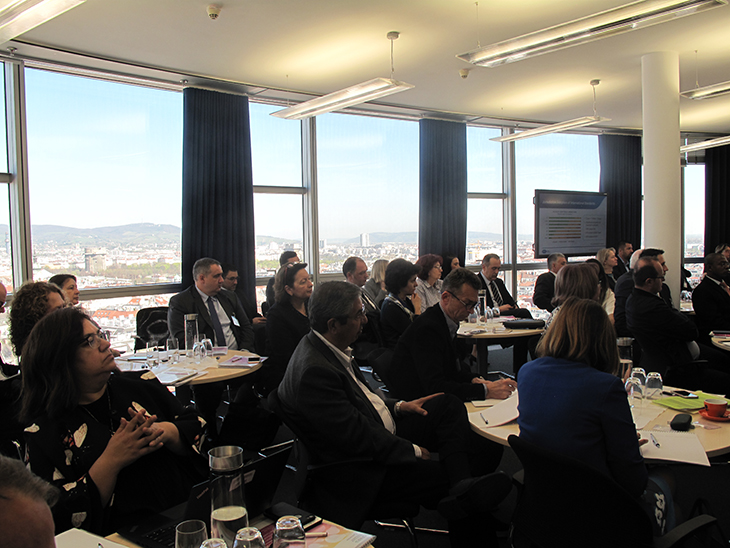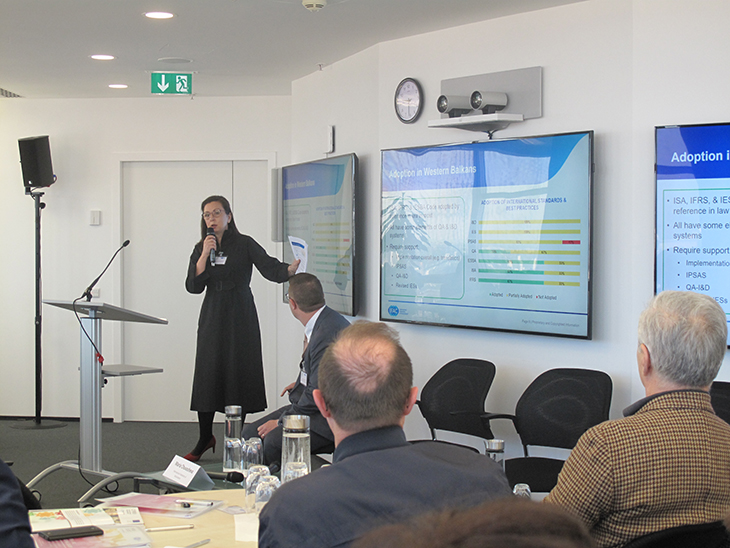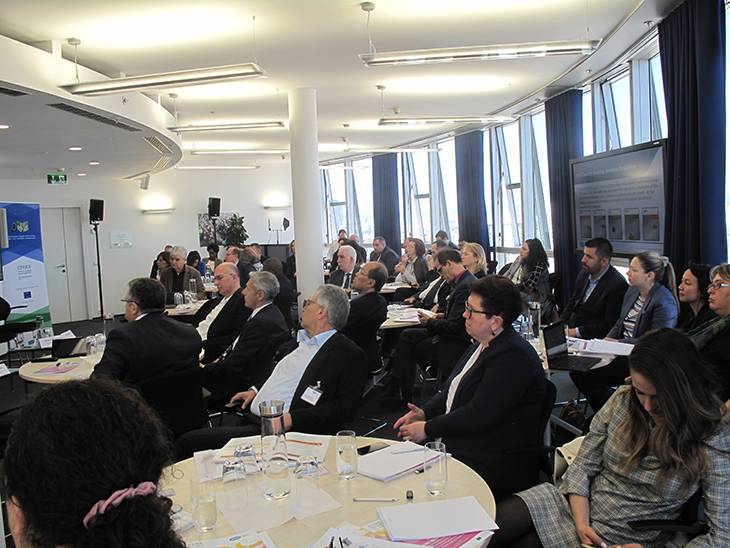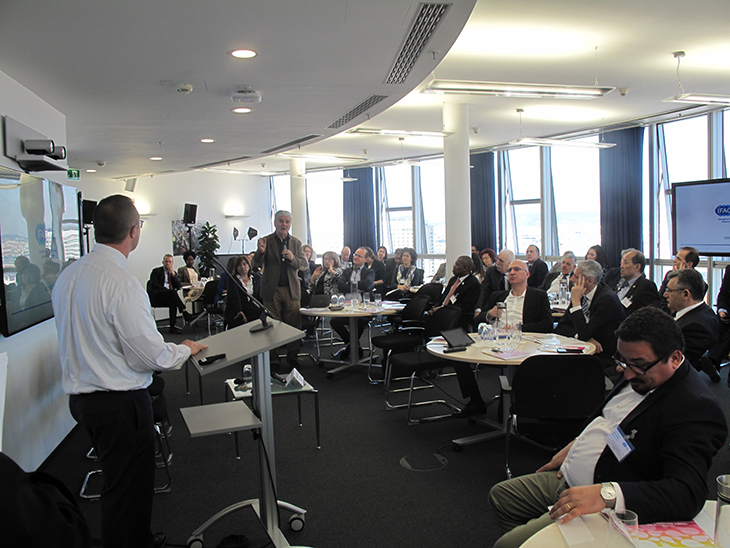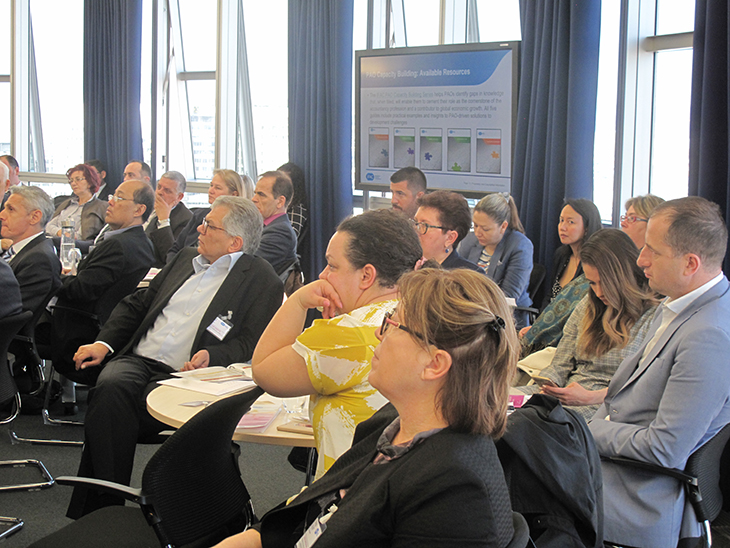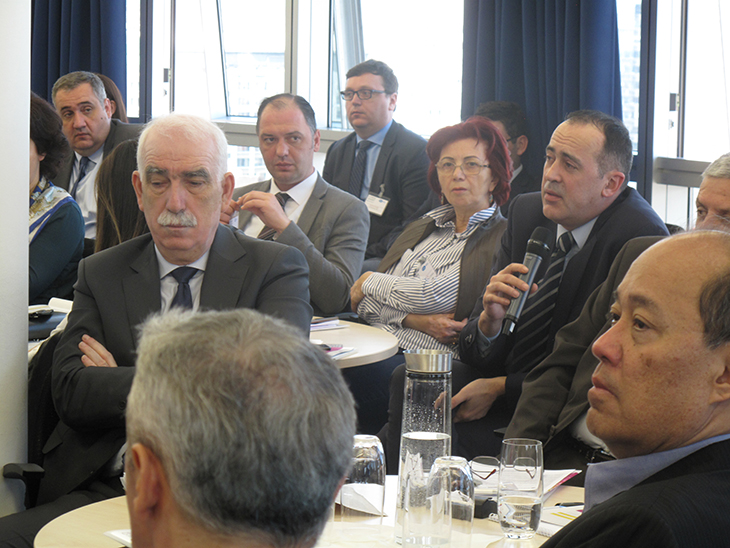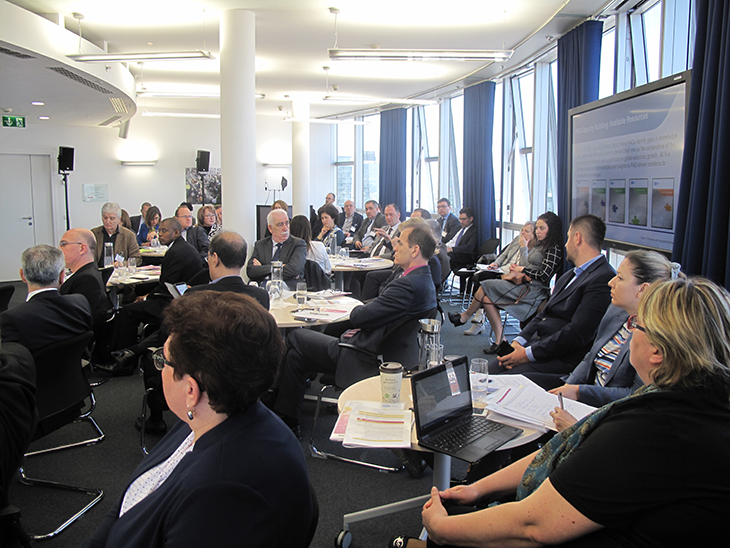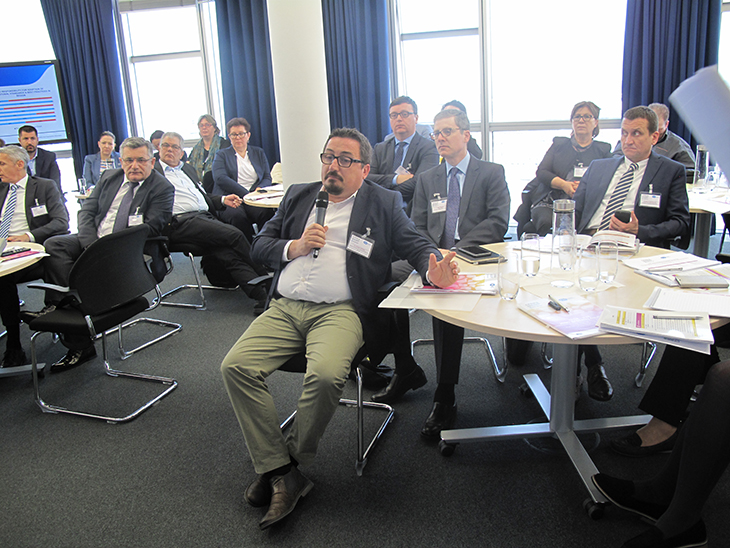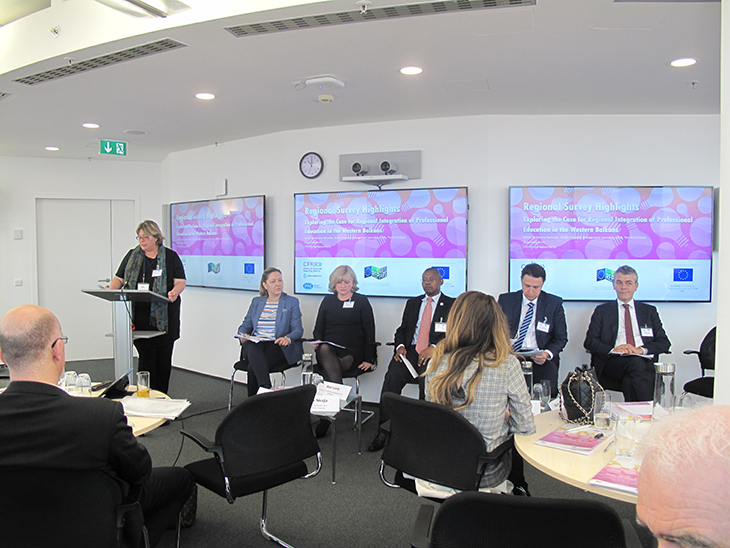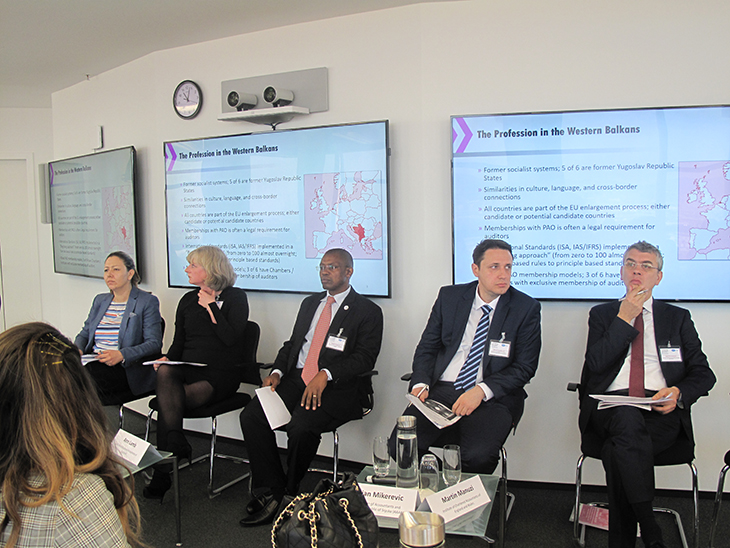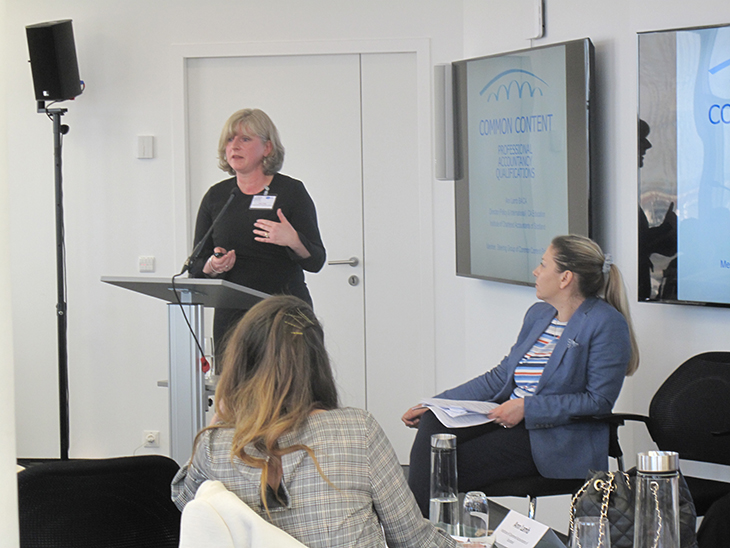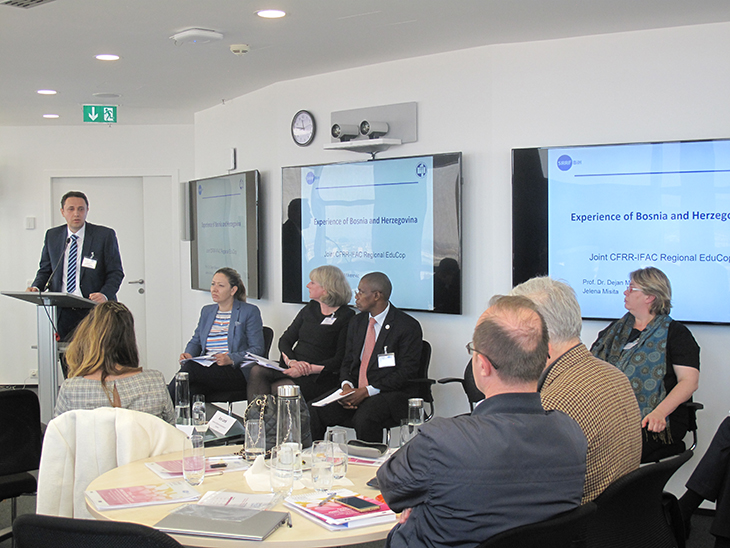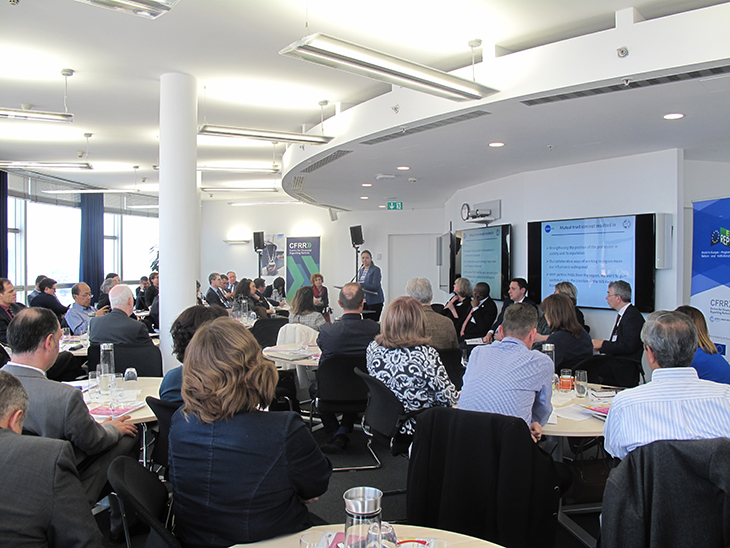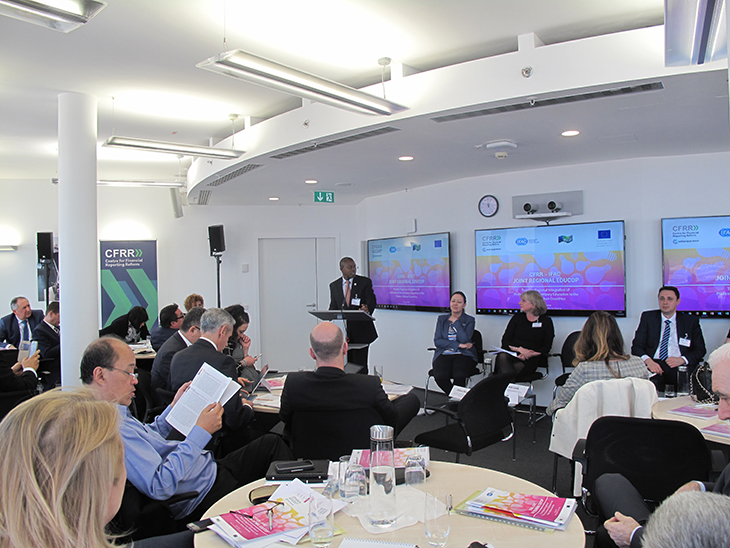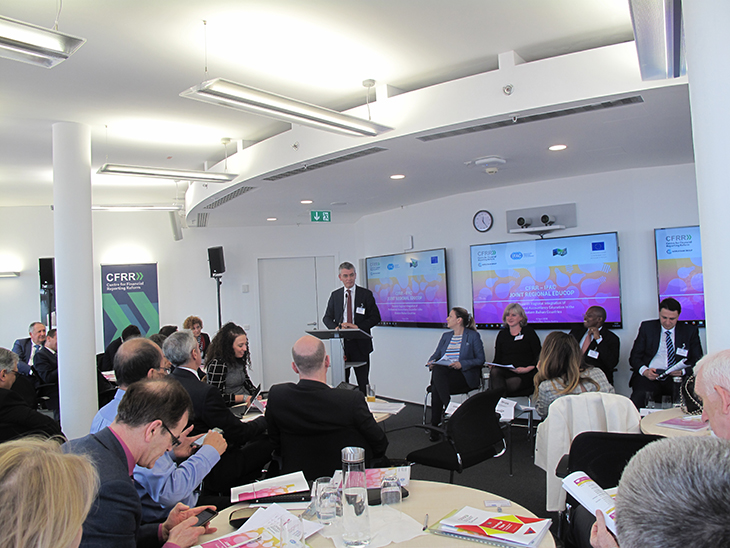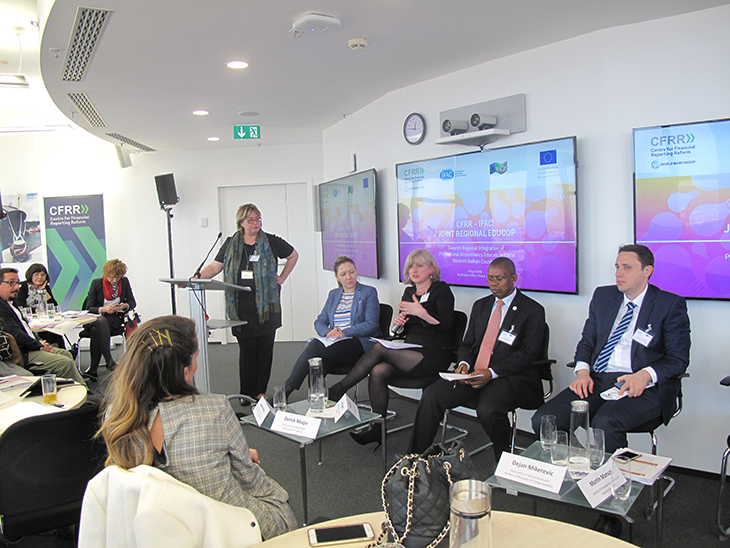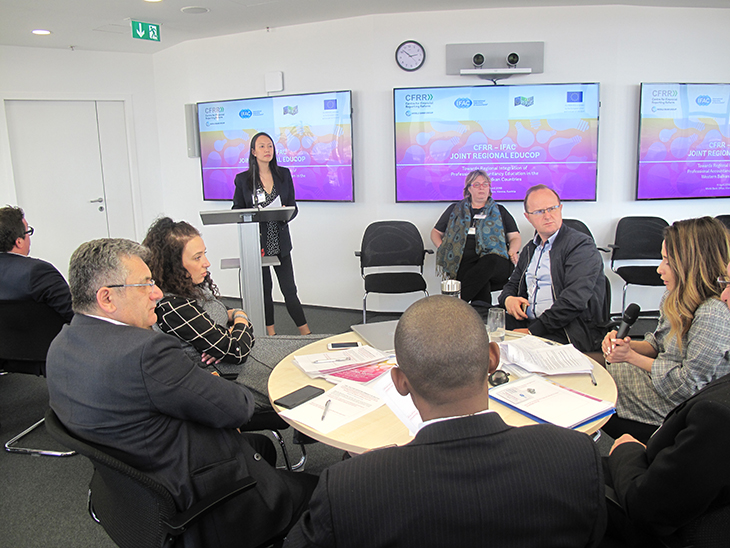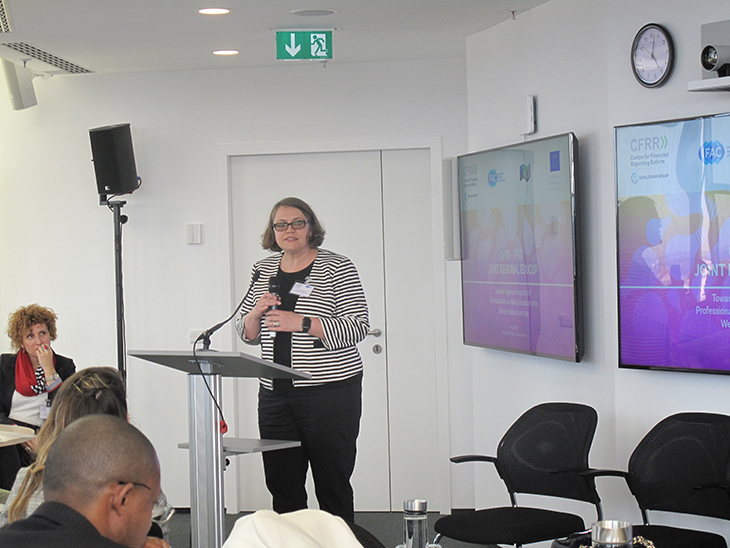This one-day EU REPARIS Program Education Community of Practice workshop, organized jointly by the World Bank Centre for Financial Reporting Reform (CFRR) and the International Federation of Accountants® (IFAC®), convened over 60 participants including the leadership team of national accounting organizations from the Western Balkans, other interested European Professional Accountancy Organizations (PAOs) and international experts in the field.
The Western Balkan PAOs have expressed interest to enhance their regional cooperation in the area of accountancy education and professional development in order to accelerate the development of the accountancy profession in the region and develop harmonized, high quality accountancy professional qualifications, relevant for both private and public sectors. The workshop hosted panel sessions and open discussions where participants exchanged experiences, practical examples and discussed ideas how closer regional integration of professional accountancy education in the Western Balkans could look like in the future.
Opening the workshop, Adenike Sherifat Oyeyiola, Governance Practice Manager, The World Bank, emphasized the importance of closer regional integration of the Western Balkan region, considering their common commitment to join the European Union and drawing on the many synergies between the countries in this region including similarities in culture and language. Jarett Decker, CFRR Head, The World Bank, and Joseph Bryson, Director, Quality and Development, IFAC welcomed participants and introduced the IFAC Compliance Advisory Panel members who contributed to the workshop discussions and working groups and shared their global experiences during the workshop discussions.
- Read IFAC article about the conference: "Accountancy in the Western Balkans: Regional Cooperation Can Lead to National Advances"
Status of International Standards Adoption and the Way Forward in the Western Balkans
In its 2017 Global Status Report, IFAC provides an analysis of the status of adoption of international standards and best practices globally based on data collected by its Member Compliance Program from 104 member organizations and the 80 worldwide jurisdictions in which they operate. Joseph Bryson, Director, Quality and Development, IFAC, highlighted the findings of the 2017 Global Status Report and the major challenges ahead, including adoption of revised International Education Standards (IES), Investigative and Disciplinary Mechanisms, Quality Assurance Review Systems and Effective PAO Governance.
The challenges of International Standards Adoption specifically for the Western Balkan region are similar to the global trends. Maria Chuvasheva, Senior Technical Manager, Quality and Development, IFAC, provided further insight on the status of fulfillment of the IFAC Statements of Membership Obligations (SMOs) in the Western Balkans identifying SMO 2 - International Education Standards (IES), SMO 4 - International Ethics Standards Board for Accountants (IESBA) Code of Ethics and SMO 6 – Investigation and Discipline, as areas where support is required.
Because of the significance of the revisions to IES (as revised in 2015), their adoption and implementation is often a complex and resource intensive endeavor and involves a multi-stakeholder commitment in jurisdictions and a coordinated national effort between both private and public-sector stakeholders. Further, when it comes to IES adoption, there is often low awareness and/or capacity amongst relevant stakeholders to effectively implement these best practices. With additional support, PAOs in the Western Balkan are well-positioned to advocate on importance of IES topics.
Exploring the Case for Regional Integration followed by Open Discussion
Kalina Shukarova Savovska, Senior Financial Management Specialist, CFRR, The World Bank, presented insights from a regional survey conducted among the PAOs of the Western Balkans with a focus towards regional integration of professional accountancy education. These insights indicate that there is already significant bilateral cooperation among the professional accountancy and audit organizations in the Western Balkans. Key benefits from such partnership and cooperation include:
- Experience sharing and good practice exchange
- Joint initiatives, harmonization of attitudes
- Cost sharing: translations, joint CPD and training
- Professional Development: conferences, seminars
- Reciprocity agreements & recognition of qualifications
A panel of speakers shared their own experiences and examples of cooperation among PAOs in the education area and highlighted the benefits that individual PAO members gain from this approach.
Ann Lamb, Institute of Chartered Accountants of Scotland (ICAS) and member of the Common Content Steering Group provided an overview of the Common Content Project, which is a European PAO group with a purpose to develop, maintain and unify high quality auditor and accountancy education benchmarks reflected in national qualifications that meet the challenges posed by globalization, mobility and diverse stakeholders.
Jelena Misita, Union of Accountants, Auditors and Financial Workers of Federation of Bosnia and Herzegovina (SRRF-FBH) and Dejan Mikerevic, Association of Accountants and Auditors of Republic of Srpska (AAARS) spoke about the cooperation between the PAOs in Bosnia and shared examples of how the success of cooperation was achieved.
Derick Nkajja, Institute of Certified Public Accountants of Uganda shared experiences from the East African Community Institutes of Accountancy (EACIA) and the Education initiatives in the African region. Martin Manuzi, ICAEW, Regional Director, Europe provided an example of ICAEW Partnerships in Education and Qualifications in Bulgaria.
Leona Verdadero, Technical Manager, Quality & Development, IFAC, facilitated a brainstorming and open discussion session where participants shared their vision for the future and possible way forward to enhance the regional cooperation among the Western Balkan PAOs in the area of accountancy education and professional development.
Closing Remarks and Next Steps
In their closing remarks, Alta Prinslo, Executive Director, Quality & Development, and Chief Operating Officer, IFAC and Adenike Sherifat Oyeyiola, Governance Practice Manager, The World Bank, encouraged the Western Balkan PAOs to continue these integration initiatives. “There must be a better way when it comes to accountancy education: developing curriculum and qualifications in one county and then doing the same in another county is not the optimum way forward. Synergies and integration are key to achieving quality within accountancy education and IES adoption” Ms. Alta Prinslo concluded.
The EU REPARIS program and IFAC will continue to support these integrative education initiatives among the PAOs in the Western Balkans through a joint report discussing the regional cooperation in the Western Balkans, the benefits of closer integration and providing good practice examples in this area as well as through facilitating a series of targeted follow up webinars aiming to continue supporting these discussions.
Disclaimer: This webpage was created and maintained with the financial support of the European Union. Its contents are the sole responsibility of CFRR and do not necessarily reflect the views of the European Union.
